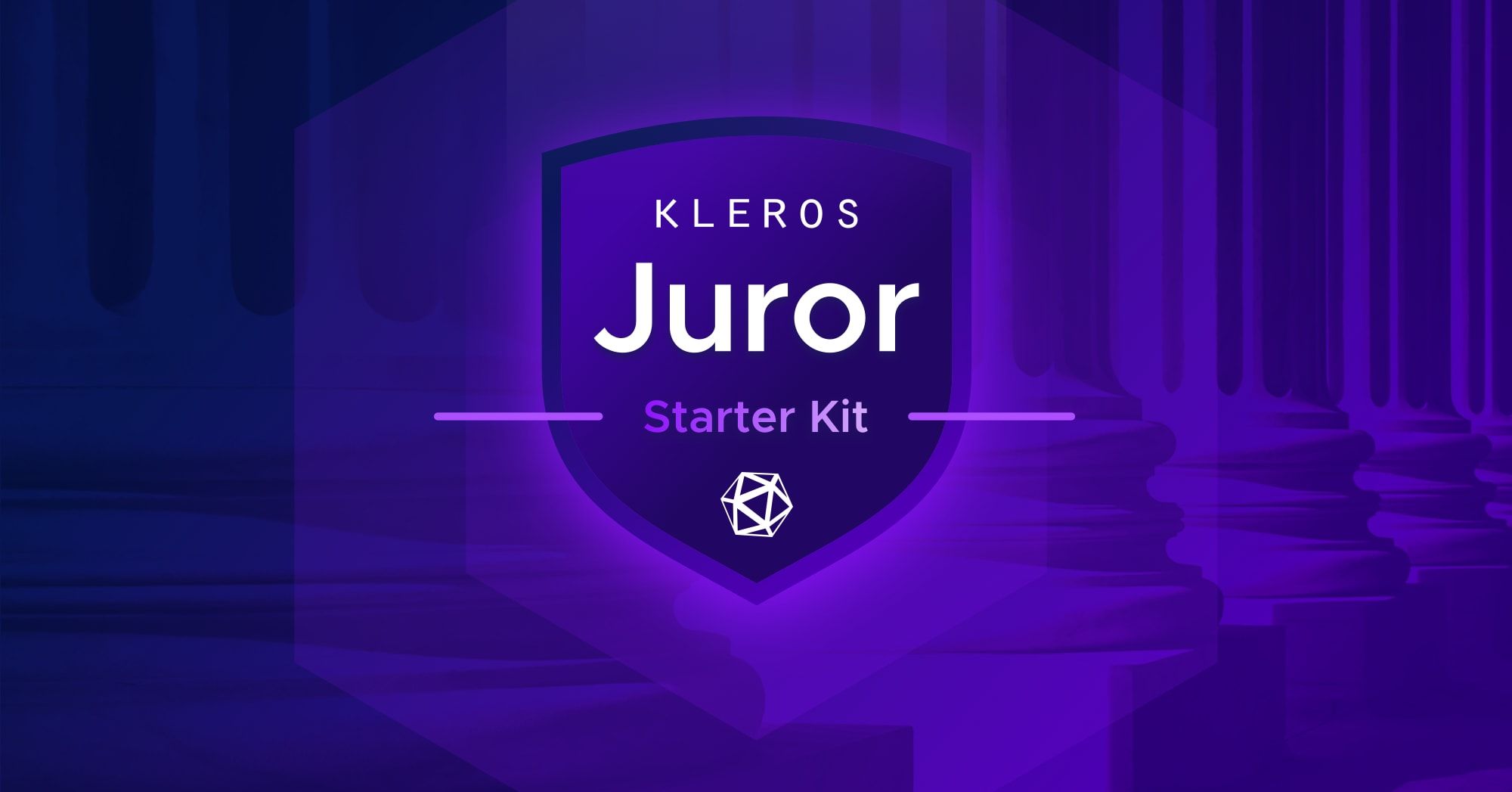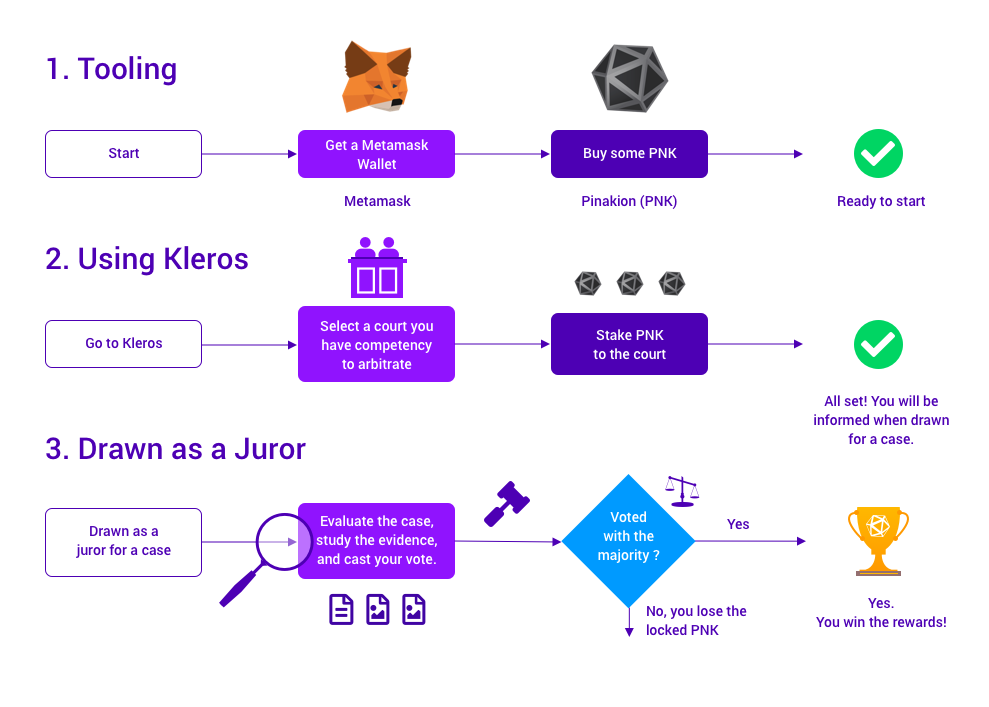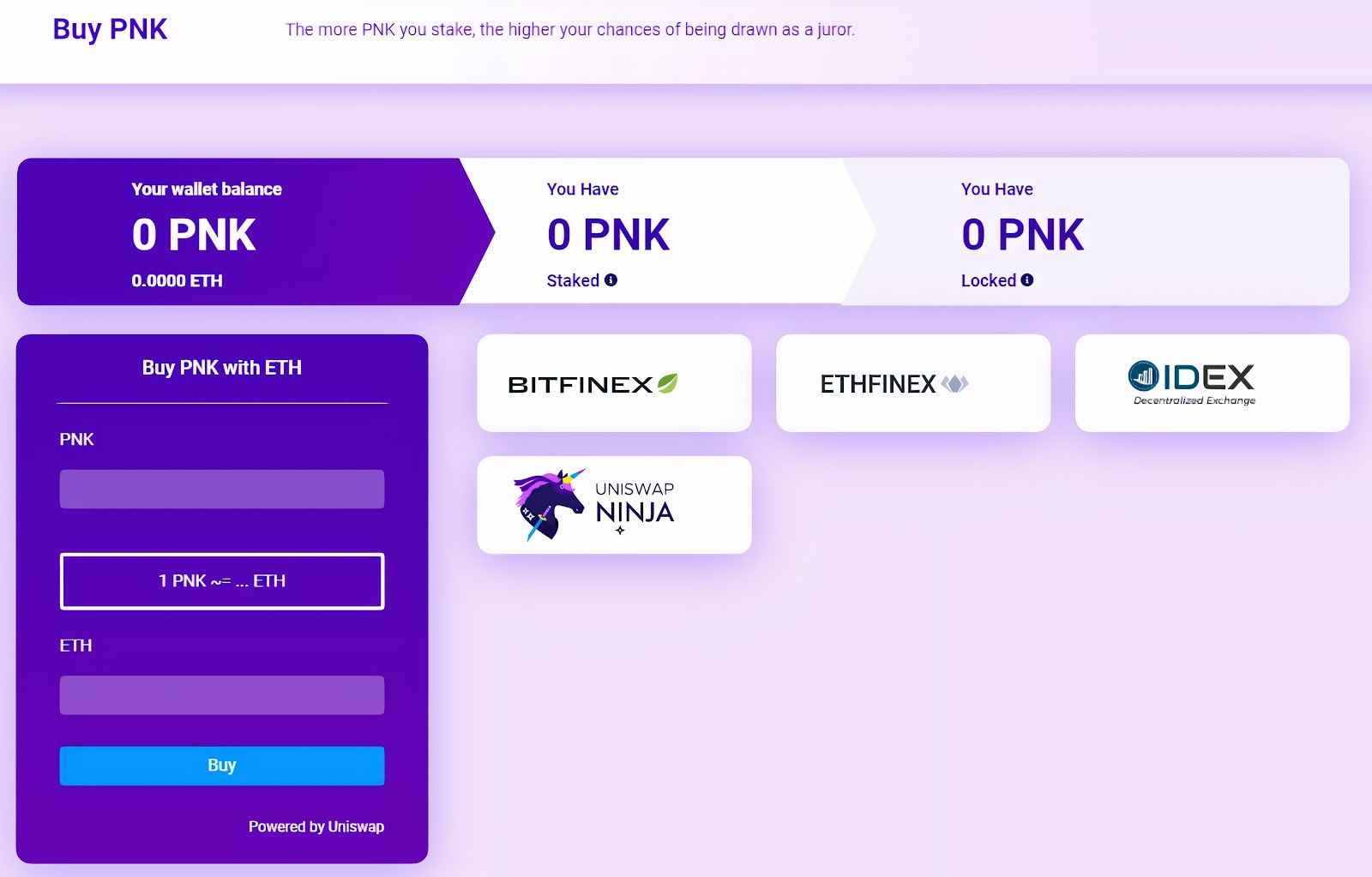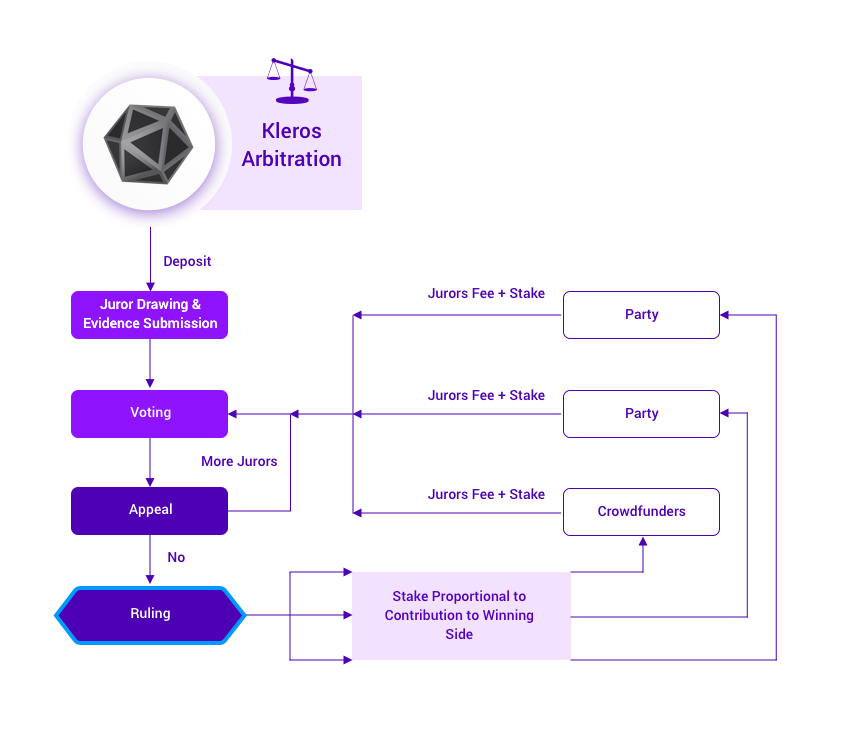The Kleros Juror Starter Kit

Welcome to Kleros.
So, you'd like to become a Kleros juror!
The process is quite simple. There is no personal information needed and there is no registration process - in short, all you have to do is get your PNK ready and stake in our courts!
To help in the process of getting you up to speed, here is our full fledged Kleros Juror Starter Kit.
Understanding How Kleros Works
Kleros works in a simple way. The disputes created on our dApps - Dispute Resolver, T2CR, Escrow, Curate and the integrated Realitio platform are immediately sent to the Kleros Court, which is our juror interface. All dApps send their disputes to the 'arbitrator side' (meaning the court), thus their side is called the 'arbitrable side'. As a juror - you want to look at what comes through on the arbitrator side.

You can follow all ongoing disputes through the Dispute Resolver and the relevant court statistics through the community run dashboard.

As seen above, Kleros operates six sub courts at this moment:
- Blockchain: this courts requires jurors to have an understanding of the broad blockchain ecosystem. It is subdivided to ‘Technical’ and ‘Non-Technical’ subcourts.
- Marketing Services: jurors in this court solve disputes regarding the quality of paid marketing services including but not exclusive to sponsored articles, social media promotion and PR writing.
- English Language: jurors adjudicate disputes arising from translation tasks created via Linguo.
- Video Production: as the name suggests, this court deals with disagreements that arise between parties regarding videos contracted through Kleros Escrow.
- Onboarding: this court is essential for new jurors, as it's a quick court that deals with small disputes on varied topics, giving a new juror a chance to test their mettle.
- Curation: jurors here have a chance to vet contents of lists and registries of all kinds, based on the lists' acceptance criteria.
Becoming a Juror
In order to become a juror, there is no sign up, no personal information needed. The only thing you need are the proper tools and your own skills.

Tooling
To start using the Kleros Court, you first need to get a Metamask wallet and buy some PNK, with some ETH on the side to pay for gas fees. If you don’t have PNK yet, the easiest way to obtain some is to go to the Court interface and just click ‘Buy PNK’ from the top right of the courts homepage. The fastest way to obtain PNK is to get it from Uniswap Ninja.

Once you've obtained your PNK, all that remains is to stake it. Since the Court is decentralized, jurors have to vet themselves to see whether they're specialized in a specific court's field.
Staking and cases
You're a beginner juror? We warmly recommend the Onboarding Court. Have a basic knowledge of blockchain technologies? Maybe staking in the Blockchain Non-Technical Court could be up your alley. A master of the English language? Perhaps staking in the English Court is your game.
Once you’ve taken a look at the courts, what remains is to stake your PNK and wait a bit to get drawn. The juror process looks something like this:
- Go to the Kleros Court. In the header, click on 'Join a Court'.

- Next, you will see the default ‘General Court’ selected. This is the parent court, so you can click down the court tree to see each court’s description and requirements. For this example, we will click through the ‘General Court’ court to the ‘Curation’ court.

- Once you pick a court, you can click on the large blue button that says ‘Stake’. Note: Once you stake in a certain court, you are automatically staked in all courts above it up to the General Court. This is for purposes of appeals, primarily.
- When the ‘Stake’ button is clicked, you can set the amount of PNK you would like to put into the system. The chances to be drawn as a juror depend on the amount of PNK you stake. The minimum stake in the Onboarding Court is at this moment 1000 PNK, while the higher stake Curation Court has a minimum stake of 1600 PNK.

- Pay the gas fee in Metamask to confirm the staking transaction.
- Once the fee is paid and the transaction confirmed you can return to the 'Courts' page and see your staked PNK in the court you have chosen. Below, we can see a user has staked a 3000 PNK. As a reminder - the higher the stake, the higher the chance of being drawn for cases on any court.

- In the above image, you can immediately get an overview of the reward each juror will receive by voting coherently. Additionally, each court has an amount of PNK that will be locked into the case once you've been picked as a juror, which is a portion of your total staked PNK and varies from court to court.
- If you are successfully drawn as a juror you will see something similar to the below in the 'My Cases' page. By clicking 'See Details' you can then review the case, evidence and make your vote.

- Users can be notified to any cases, challenges or changes in state of a dispute by signing up using the email icon in the menu header.
The Kleros court process

The Kleros court process works in the following way:
- Once a contract, submission in a curated list or a market has been challenged, the system randomly picks jurors in a court specified for the case in question.
- The case enters the evidence submission period where all interested parties (disputing parties, jurors, challengers and any external agent) are able to submit their evidence.
- After the evidence period is finished, jurors are able to vote on the case. For now, Kleros jurors can vote 'Yes', 'No' and 'Refuse to Arbitrate'. The third option is available in cases of an invalid submissions, illegal or morally unacceptable content or evidence. In all options, majority wins. Important note: before you vote, review the policies carefully.

If you have questions regarding the courts, or would just like to reach out to fellow jurors, feel free to drop a message on our Telegram, our vibrant community will be at your disposal.
For those that'd like to dig deeper and get to know the inner workings of Kleros as well as it's theoretical tenets, we warmly recommend taking a look at our book.
Have fun and see you in court!

Join the community chat on Telegram.
Visit our website.
Follow us on Twitter.
Join our Slack for developer conversations.
Contribute on Github.

